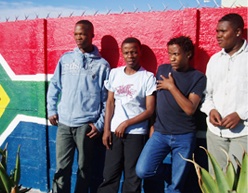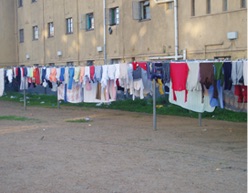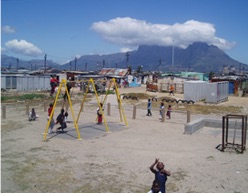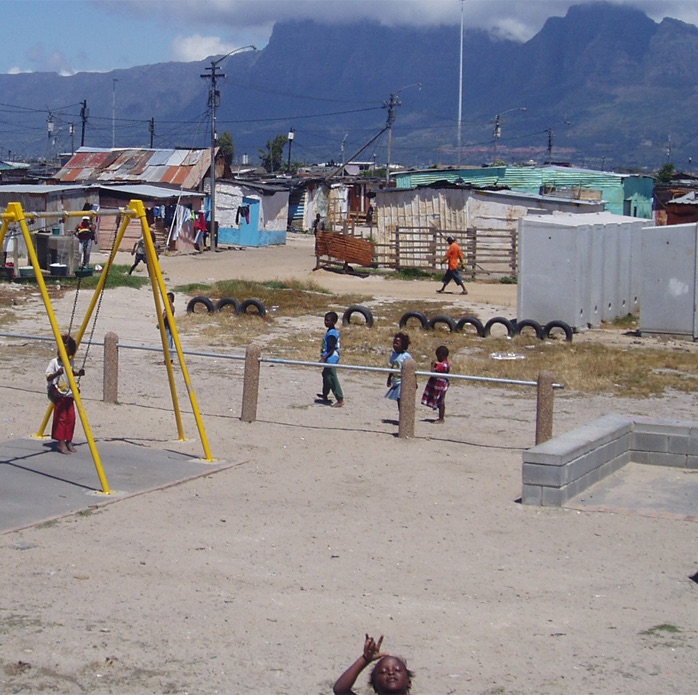More About Restitution
Praise
- A book Black and White South Africans must read together. Swartz has answered Steve Biko's call for a new consciousness among Whites and Blacks alike. Read this and let's have a conversation, our future depends on it. A major achievement! Xolela Mangcu, Sociology professor, University of Cape Town
- What a breath of sorely needed fresh air – a timely call to everyday, no-strings-attached restitution, guided by sustained, humble conversations with those dishonoured by Apartheid. Wilhelm Verwoerd, peace builder
- When last did we hear anybody talk about a just society, a better life for everybody, suggesting that enough was a feast? One of the most insightful suggestions is that inheritance should be more widely shared. Antjie Krog, author and poet
- Read Another Country if you are tired of being tired, if you are interested in moving the country forward, for the benefit of all. Poignant, inconvenient and damning. No reconciliation without restitution is the leitmotif. Paballo Chauke, Commonwealth Scholar, University of Oxford
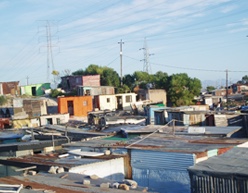
Definitions
Legal restitution aims to restore a state of affairs to its original condition, compensating or making reparations, satisfying the injured party symbolically or materially, stripping the perpetrator of unjust benefit, and returning civil, political and property rights is restitution in its legal form. It also makes allowance for programmes that rehabilitate offenders. Social restitution comprises voluntary acts and attitudes towards making good what our past history of injustice has damaged. While it includes efforts, predominantly by government, to compensate people for what was lost, to return rights, and to ensure no-one benefits unjustly from the past, it recognises that satisfying those who were affected by these wrongs and rehabilitating those who were responsible, is a better aim for individuals and communities to pursue as a moral responsibility rather than as a legal liability. This kind of forward-looking restitution, invites all parties to acknowledge the past, and to work together to repair it. The goal is a restored humanity of all involved.
Responses
- "Maybe if you had told me this is what we were going to talk about I wouldn't have come [laughs]. Because [restitution] is one of those conversations that we try and avoid. We are kind of afraid that what you're going to say is going to hurt other people. There are a lot of things that haven't been said … there's still a lot of anger… It's a wound that you just want to let heal, but at the end of the day it's what separates us. This was a good platform for me to say how I really feel about what is going on out there. We don't get this chance … A lot of people will open up. They've got a lot to say, but we don't have the right platforms. That's why you still have a lot of racist fights" (Welile, 23-year-old Black man, sales representative).
- "You'll also be pleased to hear that this has started an active ongoing dialogue between my dad and I regarding what should have been done, what was done and what should now be done, based on the African proverb, 'When is the best time to plant a tree? 20 years ago. When is the second best time to plant a tree: Today'' (Heather, 38-year-old White woman, faith-based development worker).
- "It's very difficult to talk about the Apartheid era because it brings so much pain and I might even go to bed without eating because I just lost my appetite talking about the past … [But] I don't mind even though you have opened old wounds that haven't properly healed … Our past left us with so many emotional scars as well as physical scars … I just wish that no person who was part of the struggle would live in poverty … I feel that Apartheid still exists" (Sipho, 56-year-old Black man, struggle veteran).
- "[Restitution] is a messy subject … and White people don't like to engage with it … [but] it's been a very positive experience to try and communicate what you really feel, and I think it would be beneficial for everybody to do this" (Sandy, 38-year-old White woman, music teacher).



